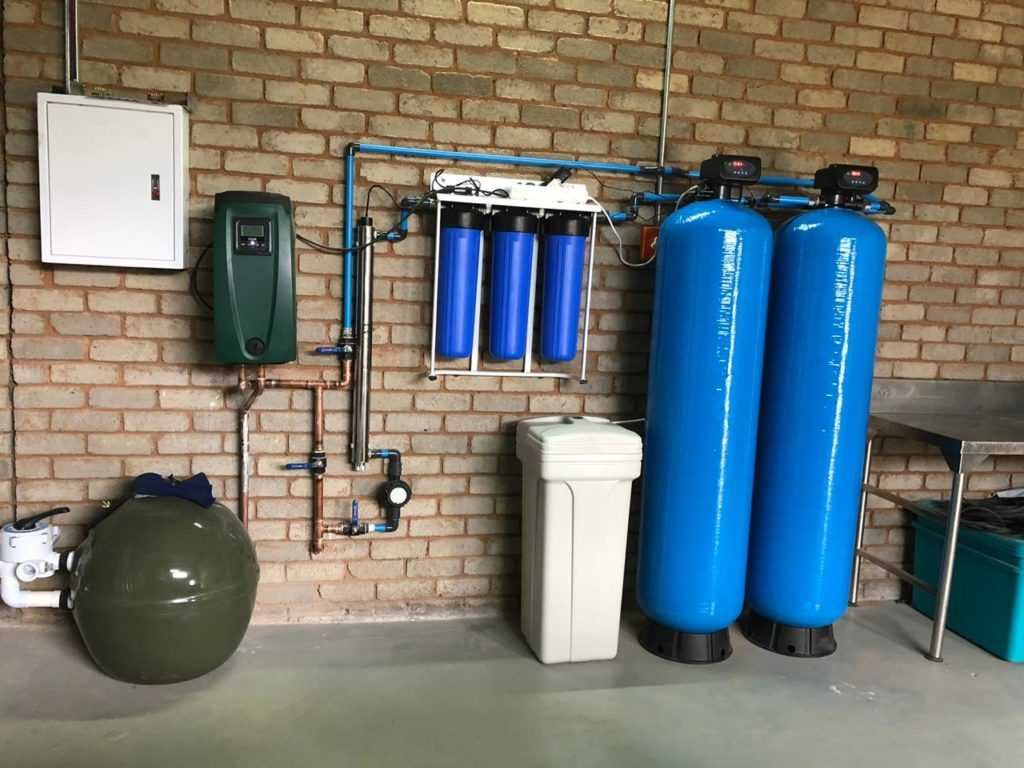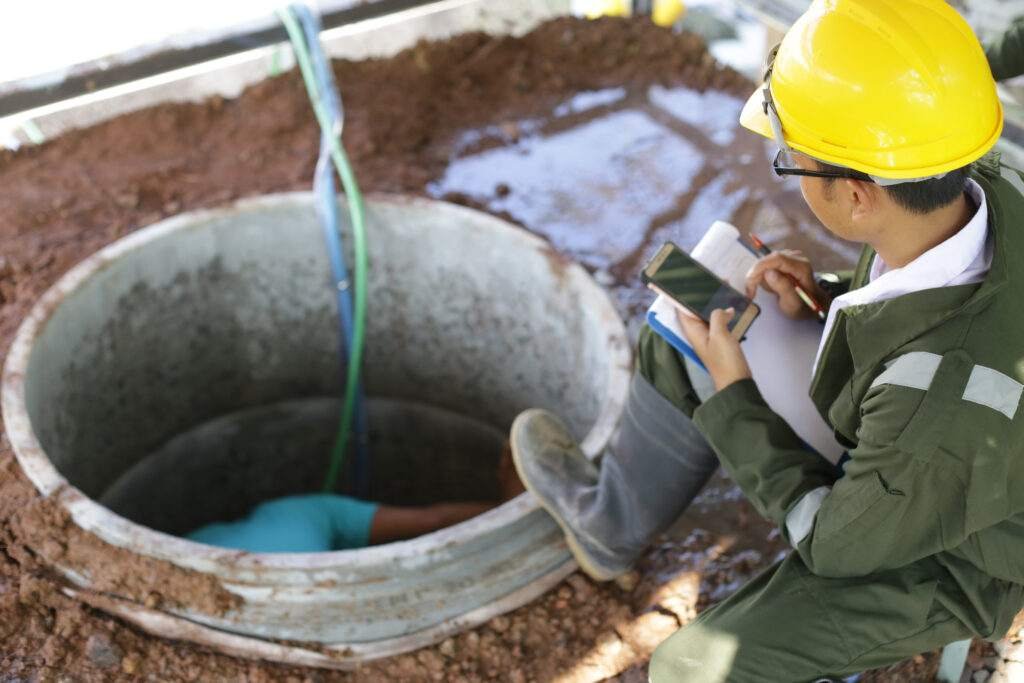Welcome to A.C.E. Plumbing and Home Services LLC! Today, we’re diving into a critical topic: understanding the risks associated with arsenic contamination in your well water. Did you know that arsenic, a naturally occurring element, can seep into groundwater and pose serious health risks if consumed? It’s essential to be aware of these dangers and take proactive measures to ensure your water is clean and safe for your family. Join us as we explore the importance of well cleaning and how it plays a crucial role in safeguarding your health and well-being.
Understanding Arsenic:
Arsenic is a naturally occurring element found in the Earth’s crust. It exists in various forms, with inorganic arsenic being the most toxic and harmful to human health. Inorganic arsenic compounds can dissolve in water, leading to groundwater contamination. Arsenic contamination in well water typically occurs due to geological factors, such as the presence of arsenic-rich rocks and minerals in the surrounding soil and bedrock.
Sources of Arsenic Contamination:
Several factors contribute to arsenic contamination in well water:
Natural Geological Deposits:
Areas with high levels of arsenic in the soil and rocks can result in elevated arsenic concentrations in groundwater.
Industrial Activities:
Certain industries, such as mining, smelting, and manufacturing, may release arsenic into the environment, contaminating nearby water sources.
Agricultural Practices:
Pesticides and herbicides containing arsenic compounds have been used in agriculture, leading to potential contamination of soil and groundwater.
Old Infrastructure:
Aging pipes and plumbing systems made of materials containing arsenic can leach arsenic into the water supply.
Health Risks of Arsenic Exposure:
Arsenic exposure poses serious health risks, including skin lesions, respiratory issues, and an increased risk of cancer. Signs of bacterial contamination in well water include foul odors, cloudiness, and gastrointestinal symptoms like nausea and diarrhea. Regular testing and well cleaning are essential to mitigate these health hazards and ensure safe drinking water for households relying on well water sources.
Skin Problems:
Arsenic exposure can cause skin lesions, discoloration, and hyperpigmentation, known as arsenical keratosis.
Respiratory Issues:
Inhaling arsenic-contaminated dust or fumes can lead to respiratory problems such as coughing, shortness of breath, and lung cancer.
Cardiovascular Diseases:
Long-term arsenic exposure is associated with an increased risk of cardiovascular diseases, including hypertension, atherosclerosis, and heart attacks.
Neurological Effects:
Arsenic can affect the central nervous system, leading to symptoms such as headaches, dizziness, and cognitive impairment.
Cancer Risk:
Chronic arsenic exposure is a known carcinogen, contributing to the development of various cancers, including skin, lung, bladder, and kidney cancer.
Mitigating Arsenic Contamination through Well Cleaning:
Mitigating arsenic contamination through well cleaning services is crucial for ensuring safe water in areas like Edgewater. Professional well cleaning services, such as those offered by A.C.E. Plumbing and Home Services LLC, utilize advanced techniques to remove arsenic and other contaminants effectively. Regular well cleaning not only improves water quality but also prolongs the lifespan of the well system, providing residents with clean and reliable water for years to come.
Test Your Water:
Start by testing your well water for arsenic levels. A certified laboratory can perform water quality tests to determine the arsenic concentration.
Install Water Treatment Systems:

Consider installing water treatment systems such as reverse osmosis, activated alumina filters, or ion exchange systems specifically designed to remove arsenic from water.
Maintain Proper Well Construction:
Ensure your well is properly constructed and sealed to prevent surface water from entering and contaminating the groundwater.
Monitor Well Conditions:
Regularly monitor your well for signs of deterioration or contamination. Inspect the well casing, seals, and surrounding area for any potential issues.
Follow EPA Guidelines:
Adhere to the Environmental Protection Agency (EPA) guidelines and recommendations for well maintenance, testing, and treatment of arsenic-contaminated water.
Professional Well Cleaning Services:
Consider hiring professional well cleaning services, such as A.C.E. Plumbing and Home Services LLC, to thoroughly clean and disinfect your well system.
Understanding the Impact of Arsenic Contamination:
Imagine waking up one morning, turning on your tap for a glass of water, and unknowingly exposing yourself and your family to a silent threat lurking in your well water: arsenic contamination. It’s a scenario that many homeowners face, often unaware of the potential health risks associated with this toxic element.
Arsenic is a sneaky adversary. It’s tasteless, odorless, and invisible to the naked eye, making it impossible to detect without proper testing. Yet, its effects on human health are profound and far-reaching. From skin problems and respiratory issues to an increased risk of cancer, arsenic contamination in well water is a serious concern that demands attention.
The Role of Well Cleaning in Mitigating Risks:
So, how can you protect your family from the dangers of arsenic-contaminated water? Well cleaning plays a pivotal role in mitigating these risks by ensuring that your well system is free from contaminants and operating optimally. Let’s explore some key strategies and best practices for effective well cleaning:
Routine Testing:
The first step in addressing arsenic contamination is to test your well water regularly. Certified laboratories can analyze samples to determine arsenic levels and identify any other potential contaminants.
Water Treatment Systems:
Depending on the arsenic concentration in your water, installing water treatment systems like reverse osmosis, activated alumina filters, or ion exchange systems can effectively remove arsenic particles, providing you with clean and safe drinking water.
Well Maintenance:
Well maintenance is crucial for ensuring clean water in Edgewater. Regular well inspections help detect issues like arsenic contamination and bacterial presence early on. Proper maintenance, including sealing leaks and cleaning equipment, prevents waterborne illnesses and ensures the well’s longevity. Trusting professionals like A.C.E. Plumbing and Home Services LLC for inspections and maintenance guarantees safe, reliable water for your household.
Professional Cleaning Services:

Professional well cleaning services offer numerous benefits for Edgewater residents. These services ensure thorough removal of contaminants like arsenic and bacteria, safeguarding against health risks associated with contaminated water. Professional cleaners use specialized equipment and techniques to deep clean wells, improving water quality and taste. By investing in professional well cleaning, Edgewater residents can enjoy peace of mind knowing their water supply is safe, clean, and reliable.
Educating Yourself:
Stay informed about the sources and risks of arsenic contamination in your area. Understanding the geological factors, industrial activities, and agricultural practices that contribute to arsenic leaching into groundwater can empower you to take proactive measures to protect your water supply.
Community Engagement:
Encourage community-wide initiatives to address water quality issues. Collaborate with local authorities, environmental organizations, and neighbors to advocate for stricter regulations, water testing programs, and public awareness campaigns about arsenic contamination.
FAQs
What are the dangers of arsenic contamination?
Arsenic contamination poses severe health risks, including skin problems such as lesions and discoloration, respiratory issues like coughing and shortness of breath, and an increased risk of various cancers such as skin, lung, bladder, and kidney cancer. Prolonged exposure to arsenic-contaminated water can also lead to cardiovascular diseases like hypertension and neurological effects such as headaches and cognitive impairment, highlighting the urgent need for mitigation strategies and well cleaning practices.
What are the safety hazards of arsenic?
Arsenic presents significant safety hazards, including skin lesions, respiratory distress, and an increased risk of cancer such as lung, skin, bladder, and kidney cancer. Long-term exposure to arsenic can also lead to cardiovascular issues like hypertension and pose neurological risks such as headaches and cognitive impairment, emphasizing the critical importance of addressing arsenic contamination in water sources.
What do you understand about arsenic contamination of groundwater?
Arsenic contamination of groundwater refers to the presence of elevated levels of arsenic, a toxic element, in underground water sources. This contamination occurs primarily due to natural geological processes, industrial activities, or agricultural practices, leading to arsenic leaching into groundwater. Arsenic-contaminated groundwater poses significant health risks to communities relying on wells or other groundwater sources for drinking water, necessitating thorough testing and mitigation measures.
How can we control arsenic contamination?
Controlling arsenic contamination requires a multifaceted approach, including regular testing of water sources for arsenic levels, implementing water treatment systems like reverse osmosis or activated alumina filters to remove arsenic, and practicing proper well maintenance and cleaning to prevent contamination. Additionally, promoting awareness about the sources and risks of arsenic contamination, along with advocating for stricter regulations and community-wide initiatives, can play a crucial role in controlling and reducing arsenic contamination in water supplies.
What is the arsenic contamination?
Arsenic contamination refers to the presence of elevated levels of arsenic, a naturally occurring toxic element, in water sources such as groundwater or surface water. This contamination can occur due to geological factors, industrial activities, agricultural practices, or deteriorating infrastructure, leading to potential health risks when consumed or exposed to over time. Arsenic contamination is a significant concern globally, requiring proactive measures such as testing, treatment, and regulatory actions to ensure safe drinking water for communities.
Conclusion
In the battle against arsenic contamination, every action counts. Whether it’s conducting regular water tests, investing in water treatment systems, or scheduling professional well cleaning services, your efforts contribute to a safer and healthier environment for your family.
At A.C.E. Plumbing and Home Services LLC, we are dedicated to supporting homeowners like you in maintaining clean and sustainable water sources. Our team of experts is here to provide guidance, assistance, and top-notch services to ensure your well water meets the highest quality standards.
Remember, clean water is not just a basic necessity; it’s a fundamental right. By understanding arsenic contamination risks and taking proactive measures, you’re not just safeguarding your family’s health today but also preserving a precious resource for generations to come. Together, we can make a difference and create a future where clean water is a reality for all.
